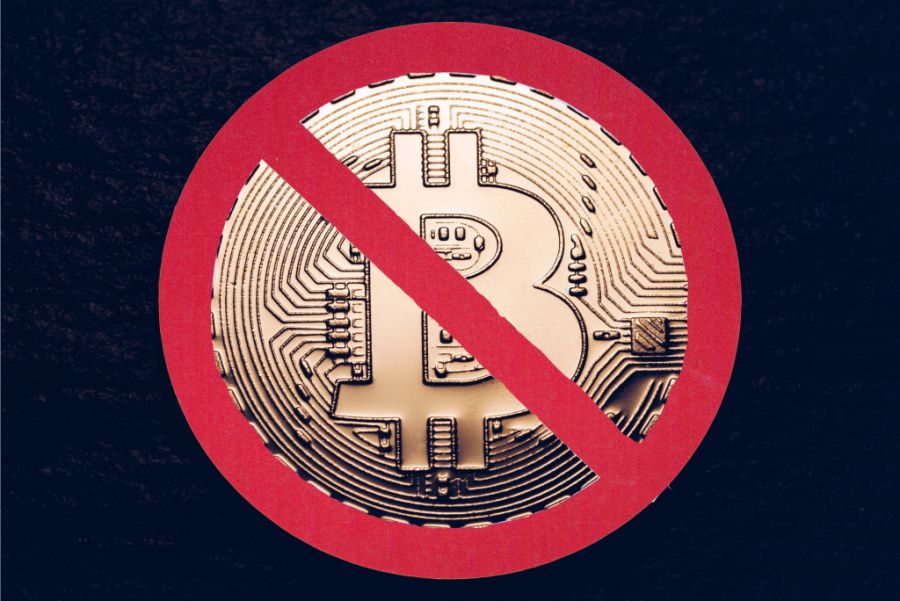Inside China's Crypto Mining Industry Crackdown: What Exactly Makes Beijing Ban Operations?
Updated: Jun 30, 2021 at 20:49

Although China has cracked down on cryptocurrencies in recent years, it remains the largest bitcoin mining country in the world, with more than 65% of the total hashrate.
With this hard-earned phenomenal leadership in the cryptocurrency industry, why are Chinese authorities now cracking down on cryptocurrency mining and trading?
China wants to get rid of bitcoin even as it leads in its production
China's dominance in the cryptocurrency industry is partly owing to its large-scale mining operations. China controls more than 65% of the total Bitcoin hashrate worldwide. However, this supremacy could not be more as the government is currently in opposition to any form of cryptocurrency activity, especially bitcoin mining.
There is currently a lot of debate over China's tough decision to crack down on cryptocurrency mining and related activities, with many people still confused as to why China would ban the lucrative business that has lifted many of its billionaires and contributed significantly to GDP. Moreover, the ban is even more pronounced now in a time of economic recession. Has China forgotten that several Chinese billionaires, including Binance Global's Changpeng Zhao, the founders of Bitmain, Jihan Wu and Micree Zhan, among others, owe their fortune to Bitcoin and cryptocurrencies?

But historically, China's bond with cryptocurrencies goes back to the last few decades. For example, in 2013, the Chinese government banned all banks from doing business with Bitcoin. In 2017, the ban on cryptocurrency transactions was tightened with the rise of President Xi Jinping, despite him being pro-digital currencies and blockchain technology.
Last month, the Chinese government vowed to crack down even harder on crypto. Since then, different countries have responded with different measures. Inner Mongolia, China's bitcoin mining powerhouse, banned bitcoin mining and related activities, and the police set up a hotline for reporting crypto crimes. Elsewhere in China, Sichuan Province, where electricity is the cheapest, authorities have yet to take a unified action, shutting down bitcoin mining pools as of Sunday.
The move by Chinese authorities has triggered a drastic drop in the market prices of Bitcoin and Ethereum. According to CoinIdol, a world blockchain news outlet, bitcoin and Ethereum fell 10% and 7%, respectively, on June 19.
What exactly is driving China's nationwide crackdown on bitcoin and crypto?
The debate over why China turned against bitcoin mining and related activities under a pro-blockchain and digital assets president is a crypto hot potato around the world. The explanation of why China is showing the red card to cryptocurrency mining ranges from environmental to social to economic and political reasons.
Monetary policy
As CoinIdol has previously reported, China through its central bank is planning to launch the Central Bank Digital Currency (CBDC), known as the digital yuan, after completing tests in 28 Chinese cities through 8 different Chinese banks. In 2018, China announced under its leadership Xi Jinping that it would develop an electronic version of its currency, the yuan.
While the digital yuan has proven successful, the Chinese government's fear in the digital finance industry is the dominance of cryptocurrencies such as Bitcoin, Ethereum, RXP and others. By blocking such strong competitors, the Chinese government is clearing the way for the digital yuan.

Control by the government
Beijing is known for its grip on Chinese people's data, which cryptocurrencies do not offer due to their decentralization and anonymity features. These aspects make cryptocurrencies difficult for the state to control. The communist state has recently launched a campaign to plant state officials in private companies, and the president has repeatedly urged private companies to serve the state.
Decentralized business transitions like cryptocurrencies limit state control. China's ban on cryptocurrencies is designed to draw attention to its CBDC and increase state control over the economy.
Environmental concerns
Although this carries the least weight when assessing China's reasons for banning cryptocurrencies, China wants to keep up with the rest of the world in the fight against climate change after topping the list of the world's biggest polluters for several decades.

China's bitcoin mining industry uses as much electricity in a single day as an average American household would use in 5 million years. This explains why most of China's miners are located in Sichuan, a southwestern Chinese province with more than 3,000 hydropower plants. In Sichuan, miners pay just one cent per kWh of electricity, compared to 12 cents for the same in America. The cost of mining a bitcoin block is estimated at $3172, among the lowest in the world. This explains why China dominates the crypto-mining industry, even though 60% of its electricity comes from coal. Consequently, pollution and e-waste are common stories around China's large-scale crypto-mining.
Although Bitcoin and other cryptocurrencies have made significant progress in recent decades, governments are uneasy about it. Bitcoin mining is particularly controversial, with many citing its high energy consumption, but recent evidence suggests that rivalry for the market is a major factor supporting the ban on crypto mining and trading.
News
News
Coin expert

(0 comments)